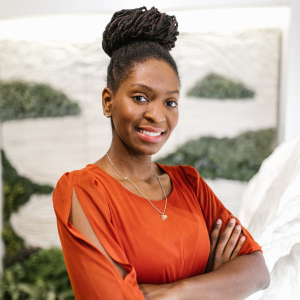The Trouble with Working Women
 By Elizabeth Harrin (London)
By Elizabeth Harrin (London)
Based on the BBC2 documentary “The Trouble with Working Women,” which ran last week in the UK, it appears that the trouble with working women is, well, men.
“Think manager, think male,” says Professor Ryan from Exeter University, as she stands in front of a board covers in statistics showing that women get a raw deal in the workplace. Only 19.3% of MPs are women. Women earn an average of 17% less than men. Thirty thousand women each year lose their jobs because they are pregnant.
Newsreader Sophie Raworth, who herself has three children under the age of five, visits a boxing club where the trainers tell her that a woman’s place is in the home. She smiles politely while looking like she wants to clock the guy. Later, a roving video both gives members of the public the chance to spill their private thoughts about women at work and I’m surprised at how easy it was for the BBC to find people willing to confess that men should be the breadwinners and women should stick to the kitchen.
Thirty years ago the feminist movement had it cracked – by now we were all supposed to be equal. Another statistic comes through the voiceover: at the rate we’re going it will take another 50 to 60 years to get near equal. The BBC is nothing if not fair, so the presenters visit a woman who runs her own small business and won’t recruit women of child-bearing age. “It’s not illegal,” she says. She doesn’t want to risk everything she’s put into the business by having to bail a woman out during maternity leave.
Fortunately, not all employers have such Neanderthal views. Raworth and her co-presenter Justin Rowlatt stop in at Accenture, and drag the HR Director out of a meeting for him to justify why they offer nine months maternity leave on full pay. He argues that in consulting you need the best brains and so you offer compensation to keep good people in the company. It seems to work. A third of the women there work flexi time and nearly all new mothers return to work. In the lift on the way out Raworth and Rowlatt pounce on a pregnant woman and get shown the breast milk fridge.
Having children is a choice, and a quarter of all women with university degrees are childless on their 40th birthday. Rosie Boycott, founder of magazine Spare Rib, explained that if she and her colleagues had had children when they started out in feminist publishing, they would have seen something different. Campaigns at the time sought to remove the physical restraints on working women at a legal level, and there was the belief that if this was achieved women would naturally rise to the top. It’s now clear that this isn’t happening and we have an exhausted generation of women trying to do it all, some of whom for financial reasons have no choices at all.
“The problem with having it all is doing it all, every day,” says Raworth. She meets Cherie Booth, QC, who is also circumspect about the progress women have made in the workplace since she started working. “There’s still a glass ceiling,” says Booth. “Crunch time always comes for women, and for men, when you start having children.”
Kids are certainly one reason why women earn less and don’t make it to the top as frequently as men. The presenters visit some schools to do their own versions of scientific tests to work out what else influences women’s career paths. Children from single sex and mixed schools run around in a gym to stand by different subjects and jobs written on card. The upshot of this less-than-scientific experiment is that girls in a single sex school believe they have more options open to them career wise than children in the mixed school. Another voiceover statistic: girls from single sex schools go on to earn more.
So the subjects we do at school, and the level of confidence we gain throughout the education process, have to be factored in to career potential. Anything else? A male statistics professor from the University of East London gives his opinion: the pay gap can be explained by the job choices men and women make. Public sector work is not so well paid but the working environment is better and there are other benefits. Women don’t choose risky and dangerous jobs which come with higher pay. Raworth is incredulous when she hears this. Like her, regardless of whatever comes out of the professor’s mouth, all I have heard is ‘women choose to earn less and be less successful.’
Raworth visits Rt Hon Harriet Harman, QC, Leader of the House and Minister for Women. She’s pushing through the Equality Bill, which, among other things, will make it illegal to have secrecy clauses in employment contracts forbidding staff to discuss pay with their colleagues. The structure in the world of work, she says, is cheating women of about one fifth of their pay. “I think it’s institutional discrimination,” she adds.
The voiceover comments that the Equal Pay Act was brought in nearly 40 years ago. There are a lot of statistics in the documentary, but one headline stands out for me: women are happier at work than men. Maybe it’s because the false dichotomy of work and home means that we don’t let ourselves be defined by our jobs. Maybe it’s because we have so many complex choices to make that we spend a lot of time thinking about it and therefore end up doing what’s right for us.
The presenters don’t have any answers. “Despite being paid less women have richer lives,” says Rowlatt, as if he’s come to a staggering conclusion about the difficulties and choices women all over the world face every day. Raworth is more circumspect. For her, the whole muddle shows that there is “less of a glass ceiling, more of a glass maze.” We’re all stuck in there somewhere, and whether it be through legal changes, personal sacrifice and just luck, we all have to hope that more and more women find their way out the other side.









This documentary actually end with the female presented telling us that she thinks that women are usually better than men at work. An amazingly sexist comment that is almost identical and opposite to what the boxing guy told her which led her to hold her head in her hands.
We should strive for equality, sexism should be denounced from where-ever it comes from and who-ever it is aimed at. Allowing women to openly express such sexist view should be seen in the same light as when men are sexist or the whole thing is meaningless.